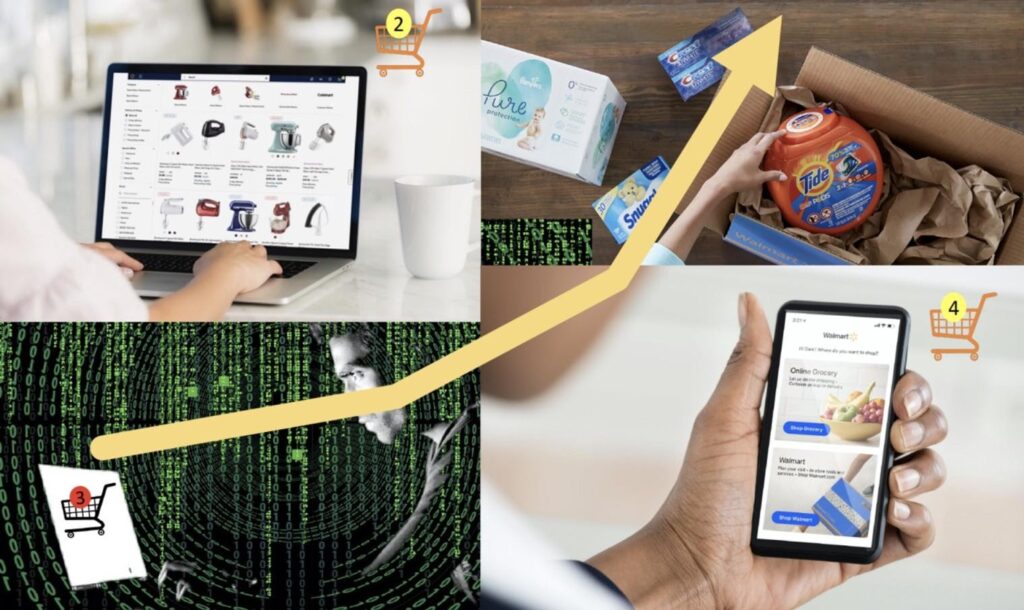Types of Retail Fraud Detection & Preventive Solutions

fraud
Fraud detection is a typical problem for retailers. It is used to preserve customer trust and prevent losses. Fraud can emerge from external criminals or unauthorized people, store associates, impersonate people or customers.
Today the most common and typical frauds involve fraudulent merchandise returns and stolen credit/debit card information.
Examination of different transactions and activities such as sale projections, accounts payable, employee shift records, returns, warehouse movements, purchasing, store-level audio and video recordings, and other data can assist you in finding out fraudulent activities and take the required actions on priorities investigations and case management.
There are many retail frauds are occurring every day. These frauds are increasing every day, and that’s why it has become essential for merchants to focus on technologies and processes intended to identify and put off retail fraud 1st degree.
Types of Retail Frauds
- Loyalty fraud/account takeover:
There are many account takeovers – in which cybercriminals use stolen information to access consumers’ login information.
According to a report, it was a big hit in 2017, with losses that increased 120% just in 1 year to $5.1 billion.
The rise of same-day delivery or shipping service makes these frauds even more typical to prevent, as the product is generally lost before retailers or vendors realize there is an issue.
- Chargeback/returns fraud:
According to The National Retail Federation report, when consumers return products or merchandise they stole or used, it costs merchants $17.6 billion.
Such type of fraud might not involve identity theft often. Fraudsters or cyber attackers order products from a website, and then they request a chargeback or return after the item ship, claiming that the merchandise was never received or their identity was theft.
- Multiple-channel fraud
Decent retailers and customers leverage the benefits of lower costs and convenience offered with in-store pickup and online shopping; however, this also opens doors for fraudsters.
Insufficient tracking and communication throughout different sales mediums make it simpler for fraudsters to bypass transactions easily.
Verifying the customers’ shipping details is protection for online screenings; however, it is not too effective when cybercriminals choose in-store pickups.
- Automated fraud:
There is a presence of a huge black market that is fully loaded with different sophisticated tools that fraudsters can easily download to attempt unauthorized access quickly, resulting in big losses for merchants.
One common attack that retailers generally face is card-testing fraud when fraudsters try to make transactions using stolen or generated credit card details such as card number, CVV one eCommerce sites.
And once the match is made, such cyber attackers can use bots to make illicit actions at rocket speed. It doesn’t stop here as these criminals also place bots to make orders randomly and quickly with computer-generated emails.
Know the Preventive Solutions for Retail Frauds:
- Illicit Manager PIN Usage
Most retailers need a manager to enter a PIN (Personal Identification Number) to unlock multiple activities, enabling fraud.
Also, abusing a PIN is not a typical job, even if a cash counter memorizes your PIN or a supervisor shares it to save time.
However, confirming authorize use with these PINs is often an impossible job.
To detect an illicit manager PIN usage, it is vital to implementing an algorithm or a pattern that cross-check each PIN used with the relevant data sends a notification alert any time a PIN is used when its owner didn’t make the transaction.
While fraudsters or cybercriminals can attack from different angles, your company should have the proper arrangement to fight it.
- Improve Your Point of Sale System (POS)
One of the best and widely used tools available is an advanced POS. With today’s advanced technology, a decent and secured POS machine provides lots of features that will assist you to spot unusual trends, keep track of purchases, digital product receipts, take notes on customers’ return/change items too often, and validate checks used as payment.
Since 2019, fraud cost businesses nearly $42 billion worldwide. An advanced point-of-sale system can store information on purchases and detect red flags. In this way, it will provide you with the power of queries and examine unusual returns made by both employees and customers.
- Streamline Your Policies and Procedures
Most companies neglect the vitality of streamlining their policies and procedures with modern standards and according to frauds.
Without a proper plan in your company, employees may not feel more restrictive to do their jobs, like giving away discount offers to those who are not capable or qualified for them or fiddle the offline record.
Whereas you can’t overlook loss prevention, it is significant to make sure that all policies and employees in the company follow the same path.
In this manner, you can easily make discussions and take decisions to outline the red flags, eligibility verification or POS, and get everyone on the same page for loss prevention.
Streamlining a company’s policies and procedures can help in decreasing both employee and customer fraud.
Category: Business




